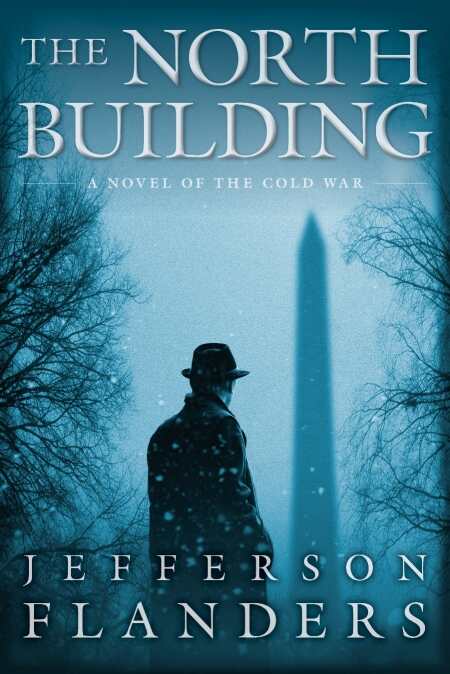The North Building
A Novel of the Cold War
Action, when it comes, is swift, unpredictable, and deadly, but in the big picture, information is the most dangerous weapon.
Jefferson Flanders’s first “novel of the Cold War,” Herald Square, was praised by sources ranging from Bush-era CIA director Porter Goss to liberal news website The Huffington Post. The North Building is a worthy follow-up, a taut thriller in which a cynical and scarred journalist is reluctantly drawn back into the deadly world of spies and counterspies.
Sportswriter-turned-combat-correspondent Dennis Collins has just returned from a field assignment with the US Marines in Korea. He’s seen good men suffer and die in a perilous and miserable “fighting withdrawal” from the frigid mountains surrounding the Chosin Reservoir, outnumbered and outmaneuvered by foes who seem to know their every move in advance. Now he’s out of the war zone, but his employer is out of business, and he’s out of a job. Both a belligerent FBI agent and a quietly unpredictable CIA operative are asking uncomfortable questions about his role in the disastrous denouement of Herald Square. Collins is not in a mood to cooperate, but there are factors beyond his knowledge that may force his hand, and choosing a side may be the only way to set some things right.
Like Herald Square, The North Building is haunted by the shadow of a looming conflict between a war-weary United States and an increasingly powerful USSR, whose hidden agents seem to be everywhere, taking advantage of the openness of American society to steal secrets and stalk defectors. Flanders takes discernible pleasure in describing certain locations, particularly the nightclubs of New York in the early 1950s, but as Collins ventures around the globe, The North Building loses some of the intimate local color that flavored his first novel. Some of the secondary characters lack the multifaceted characterization of Collins and his CIA contact, Michael Steele.
But the strong plotting carries the story forward, and the presence of real historical figures and events, including Kim Philby and his associates—the so-called Cambridge Five, a spy ring of British diplomats who were later exposed as covert Soviet agents—lends a sense of gravitas. Action, when it comes, is swift, unpredictable, and deadly, but in the big picture, information is the most dangerous weapon. An assassin’s bullet can kill an individual, but a blandly bureaucratic memo or a careless comment, quietly intercepted by a well-placed agent and invisibly forwarded to his unseen handler, can kill an army.
The North Building is a top-notch blend of historical fiction and spy drama, worthy of the attention of readers who have enjoyed the work of classic spy novelists like John le Carré and Eric Ambler.
Reviewed by
Bradley A. Scott
Disclosure: This article is not an endorsement, but a review. The publisher of this book provided free copies of the book and paid a small fee to have their book reviewed by a professional reviewer. Foreword Reviews and Clarion Reviews make no guarantee that the publisher will receive a positive review. Foreword Magazine, Inc. is disclosing this in accordance with the Federal Trade Commission’s 16 CFR, Part 255.

